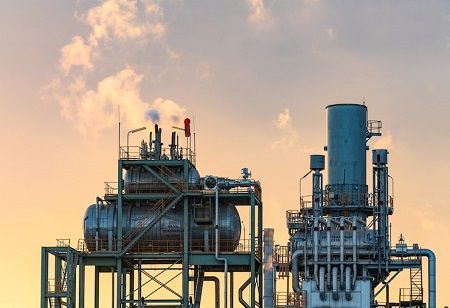
- Ten South Korean petrochemical firms to cut capacity by up to 25%.
- Govt ties tax and financial aid to restructuring and efficiency.
- Exports drop 11.1% in H1 2025 amid oversupply and weak demand.
Government officials announced that ten petrochemical firms in South Korea have consented to reorganize their operations, which entails significant reductions in their naphtha-cracking capacity.
The South Korean government is exerting pressure on the petrochemical industry it deems to be in "crisis" to accelerate restructuring efforts aimed at enhancing efficiency and improving profit margins. Executives from various companies signed a collective agreement for restructuring during a meeting that was attended by Minister of Trade, Industry, and Energy Kim Jung-kwan.
The firms have consented to cut their yearly naphtha-cracking capacity by 2.7 million to 3.7 million metric tons, according to his ministry. This would imply a reduction of up to 25% of the nation's yearly capacity, based on Reuters' estimates using a total capacity of 14.7 million tons. The ministry stated that the companies must provide a plan for how the reductions will take place by year-end.
"The key for overcoming this crisis is clear - reducing capacity and restoring fundamental competitiveness," Finance Minister Koo Yun-cheol said in a statement.
He stated that the petrochemical industry made a mistake by permitting overcapacity and not transitioning to producing higher-value products. Also, he stated that the government will lighten regulations and provide financial and tax assistance to businesses that genuinely try to save themselves.
South Korea ranks among the largest global importers of naphtha, a petroleum product that is processed into chemicals utilized in plastics for vehicles, electronics, apparel, and construction. Should the nation be compelled to reduce capacity, it may affect worldwide oil markets.
Hwang Kyu-won, an analyst at Yuanta Securities Korea stated that the government's role in leading the plan and tying financial aid to restructuring indicated that companies would face unavoidable pressure to act.
"The targets should be debt-ridden companies or those running very old facilities. The government may pressure them to merge with each other," said Hwang.
The South Korean government has outlined three objectives for the restructuring: decreasing excess production capacity and facilities, enhancing company finances, and lessening the effects on local economies and employment, according to a statement from the industry ministry on Wednesday.
Also Read: Oman-China Partner to Build Electrolyser Plant Amid Hydrogen Boom
The government plans to simultaneously reorganize three industrial complexes in the nation and provide a support package for the sector, it stated.
Margins for petrochemical firms in South Korea and worldwide have dropped sharply due to an overabundance of products resulting from constant capacity expansions over the past ten years, especially in China, the largest petrochemical market globally. Demand has also been weak over the past four years.
Analysts anticipate that global petrochemical margins will not improve until 2027. In the first half of this year, South Korea's petrochemical product exports reached $21.7 billion, a decrease of 11.1% compared to the previous year, due to falling prices and worldwide oversupply.

